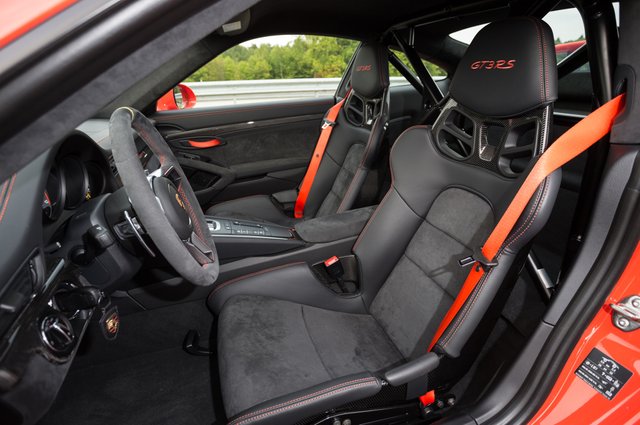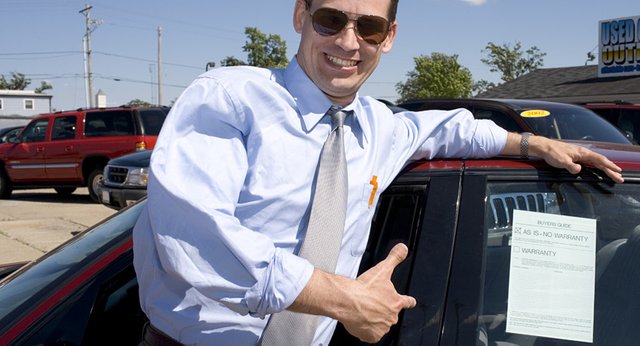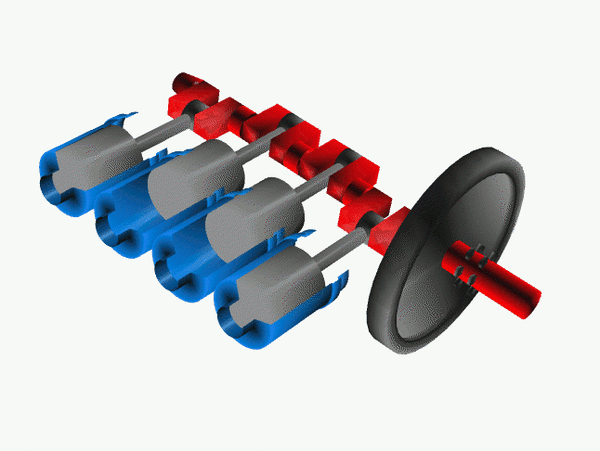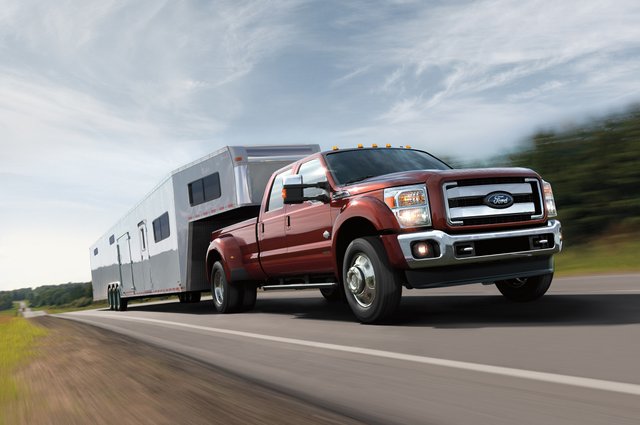6 Things You Should Never Do In a Brand New Car (Violate 'em at your own risk)

Introduction to Never To-Do's In Your New Car
Buying a new car is a big decision.
You waited such a long time for the moment and finally invested in a brand new car you've been researching for quite a bit of time. You are extremely cautious and sensitive if someone even gets near your vehicle.
Every time you get out of your vehicle, you check if there's any scratch or mark made while you were driving or parking. For some people they don't take out the stickers or films for good six months.
Unfortunately, many new car owners focus on what's visible on the exterior. But where you have to give utmost care is the inside where it's not easy to check with your eyes.
Make sure you don't violate the six things because if you do, you are up for some serious damage to your new born child.
Let's get on to it.

Whether it's the new shoes or new skateboard you bought last week, everything requires some sort of break-in process. This becomes even more true for machines, hence, your car.
So, how long should the break-in period be? In general, it's the first 1,000 miles. There might be a slight difference by model and make. This is specifically stated in your driver's manual so make sure to check it out. Anyways, this guideline will be on the basis of first 1,000 miles (1,540km).
Obviously, the most vital part in your car is the heart, the engine. You want to make sure it's broken in well so it's operating at optimal state minimizing damage in the long run.

When you start your engine, pistons in the cylinder of engine goes through cyclical motion. We know that the strokes are what ultimately rotate the wheels, so the main focus should be breaking-in the cylinder bore.
*If you're interested in finding how pistons work in an engine, check out our previous post, HERE
There are imperfect areas in the inner wall of cylinder; pistons need to "gradually smooth" it out and seal it through motion. If the piston go through abrupt motion in the beginning phase, it would eventually damage the cylinder wall. So on that note, it leads to our first rule.
1. Do not floor it. (No full throttle)

You never want to step on the pedal all the way. The most damage on the wall occurs in the combustion phase of piston strokes. Combustion of air and fuel creates gas that may force the piston rings to expand out. These protruding rings can really wear out the walls. So, this automatically leads us to the second rule
2. Don't shift at redline

For manual drivers, you never want to reach the highest RPM (redline) before shifting to a new gear. Some people might say, you need to go through "hard break-in" process. But, this is not true. By observing what high performance car manufacturers recommend, we can clearly see that "hard breaking" is not the way. For instance, for Nissan GT-R, it's recommended for the first 300 miles, not to exceed 3,500 RPM with no more than 50% of throttle. For Acura NSX, they actually do the break-in process before it's handed to their customers to prevent unknowledgeable customers from making poor decision. They don't exceed 4,000 RPM. Similarly, it is recommended that Corvette owners do not exceed 4k RPM in the break period.
3. Keep your hands away from cruise control

In the break-in period, it's imperative to have your engine running in varying RPM. If you are on cruise control, your vehicle is set on one constant RPM. You need to constantly change the speed of your vehicle, not put it on constant speed.
4. Avoid short distance travel
What this means is that you want to give the brand new car to properly warm up once it's started. Just like our body needs proper blood circulation, what you are targeting is proper oil flow all through out the engine.
5. Avoid towing

This connects to the first rule. Higher load to engine inevitably causes full throttle application. This does us no good. Additionally, your tires and brakes are not broken-in at its birth. There's film covering each parts and it requires certain molding process. Most likely, you'll need to do hard braking (not breaking, just for confusion) when you have a huge load attached to your back. You won't be able to attain full grip and you can run into some serious collision or other safety issues.
Finally, having these 5 rules in mind, make sure you do all you can to keep the next and final rule #6.
6. Never let your friend drive your brand new car

This includes your wife, husband, mom, dad, son, or daughter. They probably don't give a sh*t about the 5 rules discussed in the above. Especially, if you've just purchased a sports car, you are guaranteed that your friend would floor it all the way. Say your child is just born, would you leave baby to the hand of others? You are the only one who is going to take a good care of your car.
Before, we wrap up for today, I just want to say, adhering to the 6 things are important but keep in mind that your safety far outweighs the rules. If you are in a situation where you have a car tailing you and need to accelerate in short spurts, otherwise can never merge to a highway, please do me a favor. Go for it. Never get into collision because you were not going fast enough.
Enjoy your new car! You've earned it.
On to the next one.
One Take Away
Never go on full throttle and let your friend drive your new car, EVER!!
Hahahahaha love the 6th rule, true though, you'll never have others to take care of your newborn!
Thanks! Pretty much the 6th rule sums it all! Don't let any one lay hands on your horse. Especially, if she's brand new :)
Nice! Basic yet informative and well written.
Thank you very much for your comment :)
Impressive post @ bestofbest
Tanx for dis wonderful piece
Keep the fire burning
Steem on
Kudos...
Appreciate your kind words. I'll do all I can to provide great quality content. You just poured extra motivation. Thanks!
Well said @bestofbest
Uw
Congratulations @bestofbest!
Your post was mentioned in the hit parade in the following category:
Congrats bestofbest! It's a nice post! (More detailed comment right below)
This is just unbelievable! Great to hear. Thanks!
Never speak on your mobile when you're driving in a brand new car.
Seriously! Never do it in any car, new or old, but if you're driving a new car you're reflexes will be a wee bit slower than when you were driving your old car - because you're "new" to the controls.
More new cars meet with accidents nowadays due to the use of mobiles by the driver than ever.
Haha, this is so true. Meaning this should be added as the SEVENTH rule!
It is cool that you are spreading the word of responsible ownership (lord knows more drivers need to practice this) but the misinformation in this post is unreal. Firstly, powertrains come with thousands of break-in hours tallied up at the factory. Manufacturers run their mills through countless QA sessions to ensure there are no major concerns with their engines. They also do this to ensure the engines are operating at peak efficiency and not producing excessive emissions. Same goes for the braking system on the vehicle. Your post makes it sound like the factory just bolts on the calipers, pads, and rotors, and rolls the cars out. Quite the contrary. Manufacturers put brakes through the stress test because it is a major safety concern, and the last thing a manufacturer wants is a customer performing plastic surgery with a windshield on a test drive, because the manufacture cut corners and did not quality check the most important component of the vehicle. Break in periods are a thing of the past. You paid good money for your new car ENJOY IT. No need to sacrifice your experience on some obsolete internet wives tales.
TL;DR break in periods on modern cars are a thing of the past, and arguably there is not much evidence to support this was necessary during any point of our automotive history. If you bought a new truck you can tow from day one. If you bought a new sports car, you can put it through the paces from day one. Enjoy your purchase, and practice more important "responsible ownership" like following service and maintenance intervals, and getting problems sorted out as they manifest. Not riding out a problem until your car explodes and then you ask the mechanic to be a magician and magically fix it for peanuts XD
Thank you for your feedback. Appreciate your in-depth knowledge regarding the subject. Although it is very true that break-in periods have shrunk relative to the past, the fact checks out that first car users still need that interval. Otherwise, car manuals would not state the precautions for the early life of the new born. As mentioned in the above, one of the biggest issue is the expansion of cylinder ring and if the bore is not smoothly flattened out, there's a great chance of damage.
However, I understand your point regarding the topic and I find it intriguing. Your insightful expertise adds more value to the post and also adds extra layer to my knowledge as well.
Thanks!
Thank you, sharing this with us, you just learn us what to do when ours friend whant ours car
Good post! Car maintenance is important, but doing the little things to prevent unnecessary wear and tear on a car is almost as important.
just drift it
LOL, That'll definitely get rid of the unnecessary film on the tires. :)